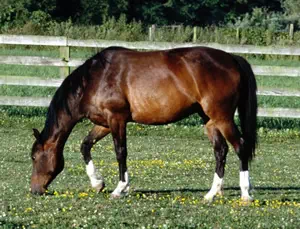|
 TENNESSEE TENNESSEE
Carcass Disposal State Regulations
General
Depending on circumstances, large animal carcass disposal may be regulated by a state's solid waste, medical waste, agriculture, or emergency management regulations. If your state does not provide specific guidance or regulations relating to large animal carcass disposal, check with your local health department, or city/county laws and ordinances.
In addition, during emergency situations and disasters (e.g., blizzards, floods, hurricanes, mass die-offs, etc.), consult with your local emergency officials, your state emergency planning agency, or the state veterinarian, to determine approved methods of carcass disposal.
Applicable Agencies and Regulations for Tennessee
Tennessee Department of Environment and Conservation Division of Solid Waste Management
Address: 401 Church St., Nashville, TN 37243
Rules and Regulations: Chapter 1200-1-7- Solid Waste Processing and Disposal. Describes solid waste handling and tells which kind of landfill can accept dead animals. Can only be accepted at Class I facilities following certain rules.
More Information
AE04-41 Non-ambulatory (Downer) Animals Frequently Asked Questions. (Tennessee Agricultural Extension Service, University of Tennessee - Knoxville, 1997). Options for disposal of animals which become down on a farm. Disposal should be within 24 hours of death. Disposal options addressed:
- Rendering: Limited to only a few areas in Tennessee - there is a list of them in this fact sheet.
- Burial: This document gives best management practices recommended for burial which is the most often utilized method of disposal.
- Burning: Need proper permits for incineration.
- Composting: Permits not required for on-farm composting operations where the compost is considered to be part of normal farming operations and used on the same farm as part of agronomic or horticultural operation. Gives additional resources for composting.
SP484 L Assessing Your Poultry Litter Management and Carcass Disposal (Tennessee Agricultural Extension Service, University of Tennessee - Knoxville, 1997). Acceptable methods for disposal of poultry carcasses are composting, incineration and disposal in covered pits. Disposal options addressed:
- Burial: Disposal in pits should be the last option.
- Burning: Incinerators must meet guidelines set by the EPA and the Tennessee Division of Air Pollution Control.
- Composting: Composting needs to meet certain requirements, see Extension publication PB 1445 go to http://animalscience.ag.utk.edu/Poultry/Publications-Poultry.html and order from your local extension office.
The Cornell Waste Management Institute (CWMI) maintains a database of carcass disposal state regulations promulgated by state environmental, agricultural and other agencies. There may be additional information on this site, not found on VetCA, that can be helpful to veterinarians, ranchers and farmers. Click here to access the CWMI information for Tennessee.

Choose another state
|

